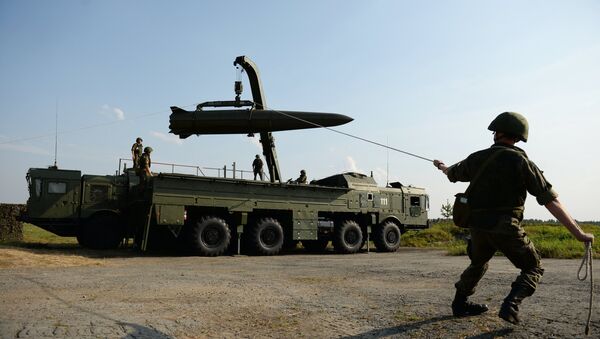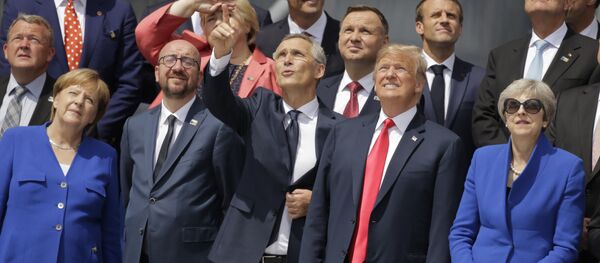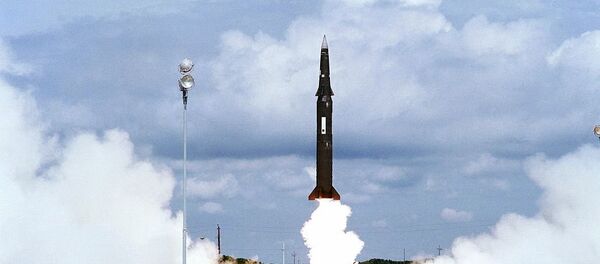The primary motivation behind Donald Trump's decision to pull out of the 1987 Intermediate-Range Nuclear Forces (INF) Treaty is that China is not a participant of the pact, says Rajeswari Pillai, senior fellow and head of the Nuclear and Space Policy Initiative Observer Research Foundation.
Speaking to Sputnik, Pillai pointed out that both Russia and the US have repeatedly accused each other of violating the treaty. However, "the real problem with the INF is not so much about the violations by Russia and the US, but that China is outside the treaty", he suggested.
According to him, once Washington withdraws from the treaty, "[it] is likely to develop new intermediate range missiles primarily to counter China".
Meanwhile, Business Insider reported Tuesday, citing the National Nuclear Security Administration, that a new low-yield W76-2 nuclear warhead requested by the Trump administration had entered production amid the US-Russian spat over the 1987 agreement. For its part, The Guardian noted that the Trump administration's nuclear posture had "blurred the line between the use of conventional and nuclear weapons" and warned about "a new arms race gathering pace".
"There is clearly a lack of general trust of Russia among the Western countries. That possibly explains why the NATO countries did not attend the Russian presentation", Pillai suggested.
It will take around 6 months for the US to withdraw from the bilateral pact.
On 23 January, Russia unveiled the 9M729 missile at a briefing for foreign military attaches. According to the ministry, military attaches and representatives of the CSTO, BRICS, EU and NATO military-diplomatic corps, as well as some other European and Asian countries, were invited to the event. However, American, British, French, and German, as well as EU and NATO, representatives never showed up.
Still, according to Pillai, in the eyes of NATO officials, 10 km do not make a huge difference: "Missile ranges can always be adjusted", she noted.
INF Treaty's Main Problem: Compliance
For his part, Paul Poast, assistant professor of political science at the University of Chicago, believes that "the INF suffers from the same problem as all arms control treaties: compliance".
"It is very difficult for states to adhere to any type of treaty arrangement — trade, investment, environmental — let alone one dealing with something as fundamental as the arms of a state", the professor said. "The INF Treaty is especially susceptible to 'cheating' because, as written, it was dealing with a very specific type of nuclear weapon".
According to Poast, these ambiguities allow the parties involved "to use the treaty however they wish".
"Both NATO and Russia can each claim to not be violating the treaty, even if they take measures that, to an unbiased observer, look like violations (at least of the INF's spirit)", he emphasised.
In October 2018, US President Trump accused Moscow of violating the INF Treaty and vowed to withdraw from it. In December, Secretary of State Mike Pompeo signalled that Washington would pull out of the pact within 60 days unless Russia returns to full compliance with the agreement. While the US refers to the 9M729 as the bone of contention, Moscow denies the accusations, citing the deployment of launchers for Tomahawk cruise missiles in Eastern Europe by Washington, which is prohibited by the treaty.
The views of the speakers do not necessarily reflect those of Sputnik.







